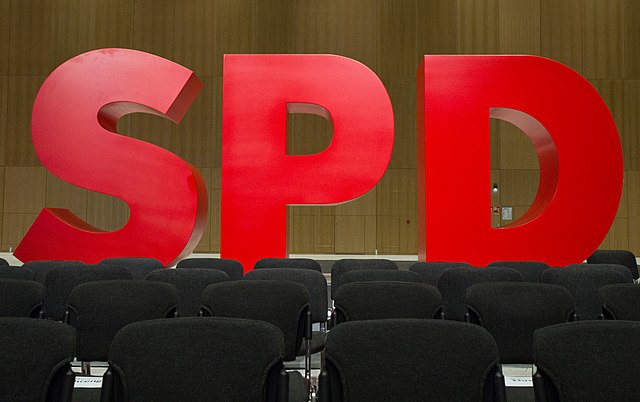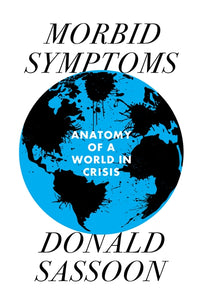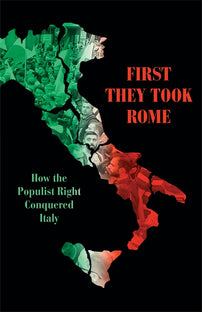The Crisis of European Social Democracy
Why have parties of the centre-left come unstuck across Western Europe since the turn of the century, asks historian Donald Sassoon in an extract from his new book, Morbid Symptoms: Anatomy of a World in Crisis.

By 2020 it had become obvious that traditional social democracy had been comprehensively defeated throughout Europe. Will it survive in some form or other, after the pandemic? Perhaps in Sweden, where it is still in power, but it is in deep trouble even there.
If, as Gramsci said, ‘the old is dying and the new cannot be born’, what is the ‘old’ that is on the way out? And is there something new on the horizon? Identifying the defunct ‘old’ is relatively easy. The ‘old’ that has gone is the kind of social democratic and liberal consensus that prevailed in the West in the thirty years after 1945, the so-called Soziale Marktwirtschaft, the social market.
The social market was supposed to create a national community which, though its members were still unequal in income, wealth and educational level, was sufficiently cohesive to make living under advanced capitalism better than living under any other kind of social system. The cost was not huge at a time of full employment, in what were the golden years of capitalism, the Trente Glorieuses as the French economist Jean Fourastié labelled them in 1979.
This almost generalised unity began to break up in the 1980s and 90s, but only in the last twenty years or so has it begun to affect the post-war party system by weakening the traditional centre-left and centre-right. In 1997, social democratic and labour parties had been in power in eleven out of the fifteen states that were then EU members. Just over twenty years later, these parties were barely in power in only a handful of countries. The social crisis has turned into a political crisis: morbid symptoms galore.
Setbacks in Scandinavia
If the once celebrated Swedish model now makes a sad spectacle for social democrats, the rest of Scandinavia can only be described as an iceberg of tears. Under the Social Democrat prime minister Helle Thorning-Schmidt, an exponent of the so-called ‘Third Way’, Denmark participated in NATO bombing missions in Libya, cut taxes for the rich as well as welfare payments, and in 2014 sold shares in DONG Energy (a state company) to Goldman Sachs and others (who made a 150 per cent profit when they sold up three and a half years later).
The sale wrecked the government and, a year later, Thorning-Schmidt was out of power, paving the way for a weak centre-right coalition supported by the far-right Danish People’s Party. Soon there was a new shift to the left and in 2019 the Social Democrats were back in power in a coalition government which includes various left and centre-left parties, but this party has been unable to obtain much more than a quarter of the vote in the past twenty years. Its presence or absence from government depends on the performance of other parties.
In Norway, the Labour Party was for a long time regarded as the natural party of government. Becoming more and more enamoured of the market economy, it privatised public assets, cut the health service and helped the rich to get richer. In the 2001 election it obtained its worst result ever (24.3 per cent). It has been in opposition since 2013.
In Iceland, one of the countries hardest hit by the 2008 financial crisis, the Social Democrats, who had over 30 per cent of the vote as recently as 2003, were reduced to 5.7 per cent at the 2016 elections, their worst result ever, gaining only a miserable three parliamentary seats. They regrouped a year later, but were now the third party. Complicated negotiations followed, leading to a government under the Left-Green Movement leader, Katrín Jakobsdóttir, in coalition with the Independence Party and the centre-right Progressive Party. It is a heterogeneous and precarious alliance.
In Finland too, in 2015, the Social Democrats obtained their worst results with 16.5 per cent, becoming the fourth party, and muddling through in opposition. At the April 2019 elections they slightly recouped, becoming, by a whisker, the first party. The Social Democrat leader Sanna Marin formed a five-party coalition leaving as the only opposition the Finns Party.
Ups and downs in Portugal
When we move away from what used to be regarded as the stronghold of European social democracy, matters are even worse for the traditional left. Sometimes it loses to the far right, sometimes to the far left. In Portugal in the late 1990s, the Socialist Party was in power, continuing with alacrity the privatisation policies of its predecessors. It was eventually able to meet the criteria for membership of the eurozone with the kind of creative accounting that prevailed in Greece and Italy.
At first, under António Guterres (now UN secretary-general), there was substantial economic growth, but this had abated by 2002. Then the Socialists were out of office and the conservatives (the Partido Social Democrata) under José Manuel Barroso (once a Maoist, later president of the European Commission, and now non-executive chairman of Goldman Sachs), formed a coalition. This achieved almost nothing and made way for the Socialists’ landslide victory in 2005.
The Portuguese economy slumped even further, wages barely increased (and remained well below those of the rest of Western Europe), while unemployment shot up. The global downturn of 2007–08 made matters even worse. The Socialists almost lost the 2009 election. At the 2011 elections they were comprehensively trounced.
In 2015, on 32.3 per cent of the vote, the Socialists were able to form a government only because the Eurosceptic ‘Left Bloc’ and the equally Eurosceptic Unitary Democratic Coalition of Communists and Greens agreed to support them. In spite of widespread scepticism about the stability of this ‘left’ coalition Portugal has done relatively well, with a reasonably high pre-pandemic growth rate. The government engineered an economic recovery, halved unemployment (though it was still high) and eliminated the budget deficit in 2018 for the first time in over forty years.
The Socialists consolidated their position in the 2019 election, while the conservatives had the worst result in their history. The situation remains extremely unstable, not only because Portugal is poor and its economy in difficulty but because voter turnout has shrunk spectacularly: from over 90 per cent when democracy was established in 1975 to only 48.6 per cent in 2019.
Implosion in Spain
In Spain disaster struck the PSOE (Partido Socialista Obrero Español – Socialist Workers’ Party) in 2011, when it suffered its worst defeat since the return of democracy. In April 2019 it celebrated as a ‘victory’ the 28.7 per cent it obtained. Yet in 1982 the party had 48 per cent of the vote, one of the highest percentages ever gained by a social democratic party in post-war Europe.
Popular discontent with the socialists as well as the conservative Christian-democratic Partido Popular (People’s Party, PP) manifested itself with the surge of two new parties, the leftist Podemos and the liberal Ciudadanos (Citizens). This led to the collapse of the two-party system. In 2019, after four elections in four years, the result was a weak coalition between the PSOE and Podemos.
The economy played a major part in the crisis of the established political parties in Spain. In the twenty years prior to the global financial crisis, Spain grew more rapidly than the EU average. The opposite happened after 2007: growth plummeted, unemployment massively increased, there were more poor people, and the distribution of income was even more unequal, while private debt skyrocketed. Austerity policies simply made things worse.
Manoeuvrings in Italy
In Italy the Partito Democratico (PD) was part of the social democratic ‘family’, and heir to the Communist Pary. But it was soon completely ‘de-communised’. The unrepentant communists survived in formations such as Rifondazione Comunista, but to secure parliamentary representation Rifondazione has had to forge alliances with other even smaller entities.
The PD itself is hardly a ‘real’ social democratic party, whatever that may mean, since it is a melange of ex-communists and various groups, parties and remnants of parties, including progressive liberals and Catholics who have no roots in anything resembling a socialist tradition.
The 2018 Italian elections were dominated by the immigration issue, even though the main problem was unemployment, especially youth unemployment. The results were a victory in percentage terms for the Eurosceptic and anti-immigrant Movimento Cinque Stelle (Five Star Movement), but the centre-right coalition won the largest number of seats, though not a working majority. The leading party within this coalition was now the far-right Lega, which outdistanced Berlusconi’s Forza Italia, and this party, in alliance with Movimento Cinque Stelle, formed a government.
Not for long, however, since Matteo Salvini, leader of the Lega, assuming he could force a new election and outdistance the Movimento, was ousted by the Movimento itself, which simply switched sides and forged a shaky alliance with the centre-left Partito Democratico. So shaky it was that it collapsed in 2021 – another victim of the debacle over Covid – and the former head of the Bank of Italy, Mario Draghi, became the prime minister of an even more unlikely coalition which includes almost everyone except the far left and the far right.
Disaster in France
At the French presidential election of April 2017, the official Socialist candidate, Benoît Hamon, only managed to obtain 6.3 per cent of the vote and was out in the first round, coming fifth, after the ‘neither left nor right’ candidate Emmanuel Macron, the far-right Marine Le Pen, the moderate-right François Fillon and even the far-left Jean-Luc Mélenchon.
Two months later, in the first round of the legislative election, the Socialist Party along with its allies achieved 9.5 per cent, less than the Front National and Mélenchon’s ‘La France Insoumise’. This was the most disastrous result for the Socialist Party in the entire history of the Fifth Republic, with the exception of Gaston Defferre who got only 5 per cent in the presidential elections of 1969.
In Germany it was no better. The SPD spent twenty years either as a junior partner in a Christian Democrat-led coalition under Angela Merkel or in opposition. At the general election of 2017 it mustered a miserable 20.5 per cent of the vote – its worst result ever, half what it had in 1979. The true winners were the far-right AfD, who became the third party. The anti-establishment vote was particularly pronounced in the former East Germany, where the far-left party Die Linke did better than the SPD, while the AfD did better than the CDU.
Merkel’s Christian Democrats too had their worst results since 1949 and found it difficult to form a government with liberals and Greens once the SPD decided it would not be part of a new coalition. Then the SPD changed its mind. After over five months of painful negotiations, a new CDU-SPD ‘grand coalition’, or GroKo, finally emerged. Today Germany is gearing up for a general election. With ‘mutter’ Merkel gone, instability will be exacerbated. Opinion polls suggest a poor result for the CDU while the Greens might emerge ahead of the SPD.
The situation is even more dismal for the Dutch Labour Party (PvdA). At the 2021 elections it obtained 5.7%, the same as in 2017. It is now the sixth party in the Netherlands, well after four parties of the centre, centre-right and far right and even just below the leftist Socialist Party.
A wrong turn
It is always risky for a political party of the left to accept so much of the agenda of the right. Most social democratic parties sooner or later embraced a policy of austerity, allowed wages to stagnate and inequalities to increase, and privatised public services to an extent unimaginable thirty years ago. They allowed inequalities to increase and did not dare to tax the prosperous beneficiaries.
In the UK relatively few households receive an income well above the average GDP per person. The top 0.1 per cent number only 50,000 people in a population of 65.5 million. Since no one can win an election by favouring the top 0.1 per cent, let alone the top 10 per cent, even conservatives are worried. In fact, the UK is much more unequal (in terms of the ratio of the top 1 per cent to median income) than Germany, France, Italy or Spain.
The struggle against inequality could have been an obvious social democratic card to play. Instead, these parties opted for what they thought was caution: pandering to the dominant pro-market ideology. And so, they lost the game. Politics has become a circus in which everyone turns to whoever is available, following Bismarck’s cynical dictum (in a letter to his wife): ‘One clings to principles only for as long as they are not put to the test; when that happens, one throws them away as the peasant does his slippers.’
[book-strip index="1" style="display"]This is an edited excerpt from Morbid Symptoms: Anatomy of a World in Crisis, out now. Donald Sassoon is Emeritus Professor of Comparative European History at Queen Mary, University of London, and the acclaimed author of The Anxious Triumph, The Culture of the Europeans, One Hundred Years of Socialism and Mona Lisa, all widely translated.




